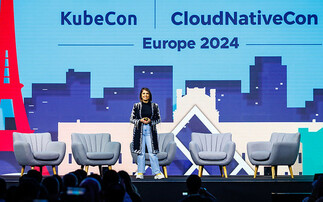Competitors risk 'negative margin' without offering USP on top of storage offering, warns Sam Schillace
Dropbox and Google are playing a "loser's game" with their enterprise storage models, while Windows' model is lagging at least eight years behind the rest of the industry, Box's VP of engineering h...
To continue reading this article...
Join Computing
- Unlimited access to real-time news, analysis and opinion from the technology industry
- Receive important and breaking news in our daily newsletter
- Be the first to hear about our events and awards programmes
- Join live member only interviews with IT leaders at the ‘IT Lounge’; your chance to ask your burning tech questions and have them answered
- Access to the Computing Delta hub providing market intelligence and research
- Receive our members-only newsletter with exclusive opinion pieces from senior IT Leaders






















